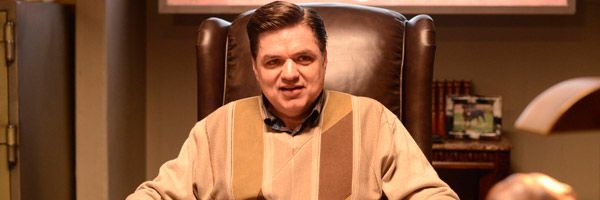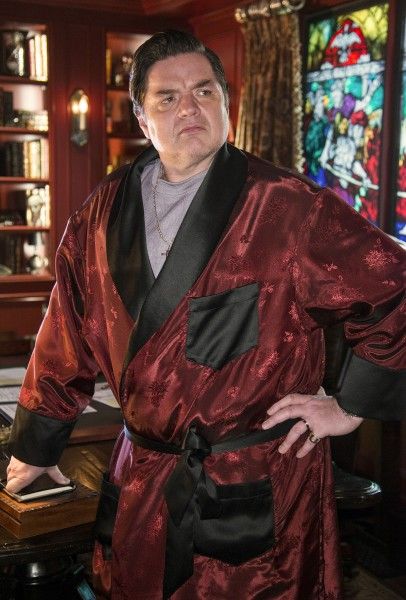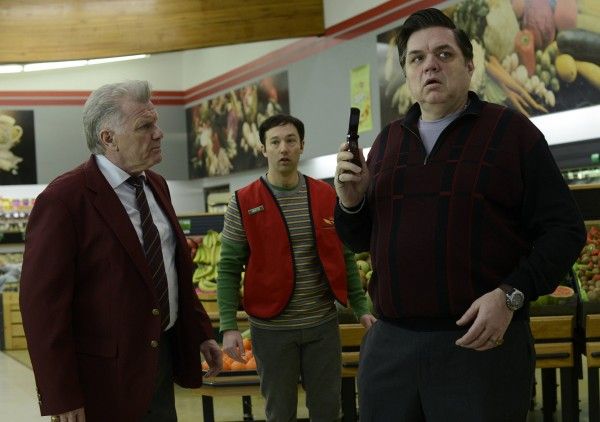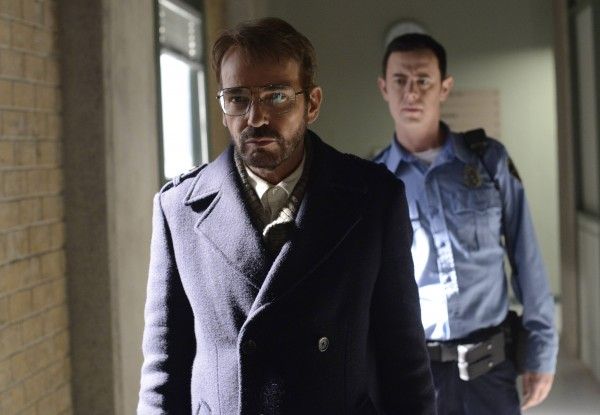An original adaptation of the Academy Award-winning feature film, the FX drama series Fargo features an all-new crime story with all-new characters. Lorne Malvo (Billy Bob Thornton) is a ruthless and mysterious man who turns the life of small town insurance salesman Lester Nygaard (Martin Freeman) upside down, in a way that he never could have imagined. From executive producer/writer Noah Hawley, the show also stars Bob Odenkirk, Colin Hanks, Allison Tolman, Oliver Platt, Keith Carradine, Kate Walsh, Glenn Howerton, Adam Goldberg and Joey King.
During this recent interview to promote the show, actor Oliver Platt (“Stavros Milos”) talked about what attracted him to this role, how much of a backstory he was given, his trepidation about signing on, approaching the show’s unique humor, shooting in Calgary, and how he feels about the evolution of television. Check out what he had to say after the jump, and be aware that there are some spoilers.
Question: What attracted you to this role and made you want to take it on?
OLIVER PLATT: It was just such a muscular arc. One of the first things that you look at is, where does the guy start and where does he end, and how do they get him there? What we yearn for, as actors, is that distance to travel, and Noah [Hawley] laid that out in spades. It was a story that took this guy and everything that he believed in and turned it on its head. He didn’t know who it was or who was doing it to him. The brilliance of the scheme is the ninja mind tricks.
How much of a backstory were you given by Noah Hawley, in order to prepare for this role?
PLATT: We developed this idea that he had come from Chicago with his family, and that he was just on hard times. He’s a devout man on hard times, who is given this gift, if you will. That was pretty much it. The material itself is pretty alive.
Did you have any trepidation, at all, about starring in a show that’s based on a movie that was so critically acclaimed that people still hold it so dearly to their hearts?
PLATT: The answer is, absolutely. The stuff that I was shown and the story that I was told, and the fact that Joel and Ethan [Coen] had blessed it was not insignificant. I have to say that I think that Noah’s done a pretty remarkable job of threading that needle of writing in their tone, but with his own voice, if you will. It’s pretty impressive stuff.
Given the way that the Coen brothers use their humor is very unique, did that effect your performance, or did you let it all come from the writing?
PLATT: The way that you usually want to go about it is to let the writing inform your own sense of rhythm. It’s very much in there. In the best case scenario, you can’t see the joke. It’s just arising organically out of the conflict that’s been created between the people in the scene. It’s happening on a lot of different levels. You just get on the horse and you ride.
How did you approach playing a guy who’s this much of an asshole?
PLATT: Well, the first key is that you don’t look at the person that way. You look at the person and say, “How does he think he’s helping? How does he think he’s making the world better?” When you catch an actor judging the character that they’re playing, it’s not terribly interesting. Much more importantly, I think that Noah appreciates those aspects of Stavros, too. He has that perspective, and it’s something that we talked about.
What were your experiences, shooting in Calgary, Canada? Did it help with your performance?
PLATT: It was very, very cold when I was there. There’s a scene that takes place in Episode 6 that was pretty intense. We were in weather that was 10 degrees below, doing this stuff, over and over again. It helps. In terms of putting yourself in the position of what the character’s going through, Mother Nature giving you a huge assist. It’s a very, very well chosen location, in terms of feeding that sense of the expanse and the desolation and the loneliness of those people.
How do you think Stavros evolves into the man he is when Malvo comes into his life?
PLATT: Well, he built this extraordinary supermarket empire, and he’s been very, very focused on the externals. You get the sense that Malvo just has a nose for that kind of thing. He’s all about how everything’s looking. Obviously, he doesn’t really feel that he deserves it, which is probably why he’s, on some level, so focused on the theatricality of it all.
Are we going to see things continue to escalate with Malvo torturing Stavros, as the show goes on?
PLATT: Indeed, you are.
When you did the scene with all of the crickets, was that all CGI, or did you have to contend with real-life insects?
PLATT: It was a pleasant mix. There were inanimate crickets, there were animate crickets, and then there were imaginary crickets. It was one of those classic green screen situations, with a lot of motion to it. It was a lot of fun to shoot. The way the concentric circles of chaos were created in the market was delightfully realized. I don’t remember doing a tremendous amount of takes.
What are your feelings on how TV has evolved, especially being on an anthology show like this?
PLATT: Depending on who you talk to, we’re in either the second or third Golden Age of American television. The advent of the limited mini-series is a marvelous thing for actors because you don’t have to sign your life away. It’s also allowing television to do what really only television can do, which is use the serialized format to tell us a story over a period of time and really get under the character’s skin. Television is going strong.
Fargo airs on Tuesday nights on FX.




